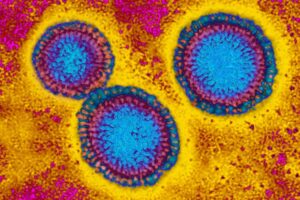Your Testicular Cancer Treatment Options
 Providing alternative Testicular cancer treatment is an integrated approach at Sunridge Medical. Our treatment plans are individualized, even for patients with the same type of cancer, and combine traditional and alternative medicines. We have merged advanced, research-based alternative medicines with conventional therapies into a comprehensive, individualized treatment program that offers our patients optimal success.
Providing alternative Testicular cancer treatment is an integrated approach at Sunridge Medical. Our treatment plans are individualized, even for patients with the same type of cancer, and combine traditional and alternative medicines. We have merged advanced, research-based alternative medicines with conventional therapies into a comprehensive, individualized treatment program that offers our patients optimal success. Revolutionizing Testicular Cancer Treatment
Testicular Cancer Treatment Options
The Sunridge Approach to Testicular Cancer Treatment
At Sunridge Medical we offer a comprehensive immunobiological treatment aimed at attacking the cancer, and restoring the body’s natural defense and regulatory mechanisms, including the immune system and detoxification pathways. Our approach combines alternative and conventional therapies to provide patients with the most overall comprehensive Testicular cancer treatment. Because successful cancer treatment is not a “one size fits all” approach, substantial time is spent with each patient to learn more about the details surrounding their illness as this is a necessary component to developing the right treatment. Cancer cells develop in every human being.
Testicular Cancer - A Second Opinion
Naturopathic Oncology and Integrative Oncology
Understanding Testicular Cancer Treatment
The Cancer Cell in Testicular Cancer
A Weakened Immune System and Cell Production
Circulating Tumor Cells and Cancer Stem Cells
Stopping the Glucose Game
Standard of Care for Testicular Cancer Treatment
The Effects of Chemotherapy vs. Natural Chemicals in Testicular Cancer Treatment
To the contrary several natural chemicals can create a specific programmed cell death (apoptosis) of cancer cells by penetrating the cancer cell membrane. Apoptosis attaches a genetic message for a cell to self-destruct. Omega 3’s, Resveratrol, Vitamin C, pine tree bark and an exhaustive list of morphing substances found in nature can have this miraculous affect, especially when delivered directly into the bloodstream intravenously. It would not be fair to say that alternative cancer therapy is without side effects, but those effects in no way rank in the same caustic category of chemotherapies.
Types of Testicular Cancer:
Risk Factors Associated with Testicular Cancer
- Age as it usually occurs in males between 20-40 year old
- Race and ethnicity
- History of undescended testicles as a child
- Family history increases the risk
- History of testicular cancer in the other testicle
- Infection with HIV has been shown to be a risk factor


